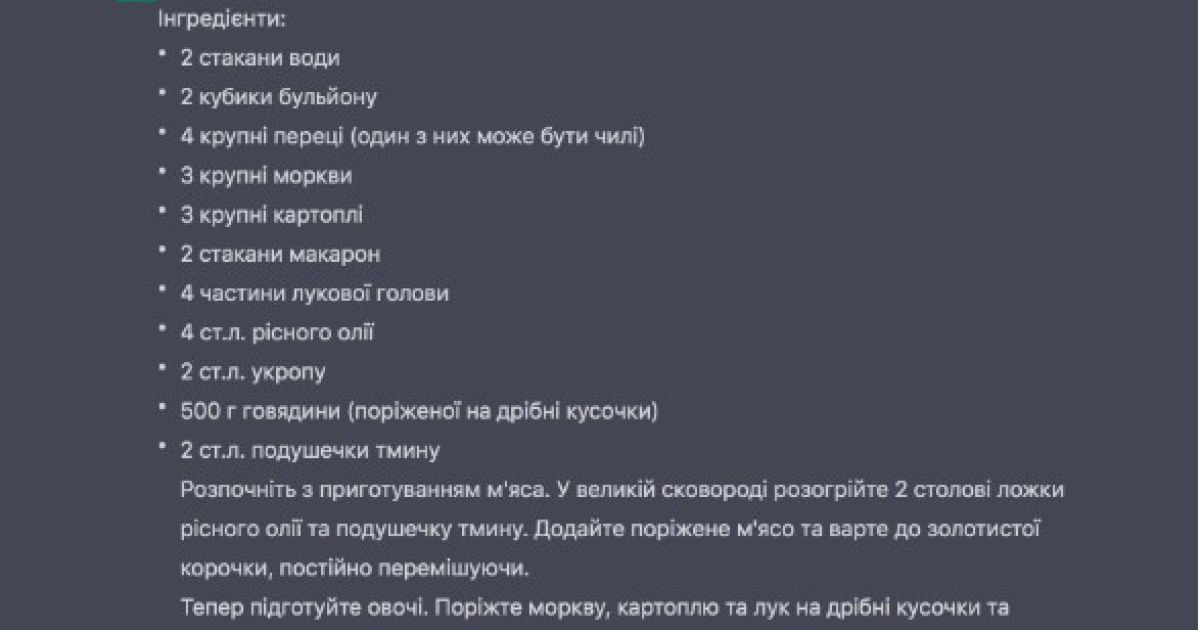A new chatbot with artificial intelligence (AI) that interacts with users has caused a stir in the world of technology.
Until recently, we only theorized how artificial intelligence would affect our lives, now we can see it in real life.
According to experts, a technological revolution awaits us, which will change the Internet and the world in general.
History of ChatGPT creation
On November 30, 2022, the California artificial intelligence laboratory OpenAI, whose founders and investors included Elon Musk, launched the ChatGPT chatbot based on the GPT-3.5 neural network language model.
This is artificial intelligence (AI) capable of generating new information.
A few months after its creation, the audience of the chatbot grew to 100 million users.
This is an unprecedented growth rate, which even TikTok and Instagram could not boast of.
When creating the chat, the developers first of all tried to make it easy to use, correct and "human".
In order to "teach" him, a huge number of texts from the Internet and the Reinforcement Learning from Human Feedback system were used.
RLHFs are reinforcement learning systems based on human feedback, where dedicated AI trainers check the model's responses and communicate with it.
ChatGPT is designed to generate human-like responses to a wide range of algorithmically input data.
The service is able to understand human language, build a dialogue with the interlocutor, answer complex questions, argue and reject inappropriate questions.
What the ChatGPT chatbot can do
According to the developers of the chat, it is similar to a person, only it has all the knowledge of the world.
The chatbot can answer questions on a wide range of topics, solve coding tasks.
You can ask AI to write essays, poems or scripts, it can translate or summarize the text.
ChatGPT remembers the details of the conversation and builds responses based on what the user has already written before.
He remembers and will tell what the dialogue started with.
OpenAI's chatbot can provide recommendations on medical issues, offer treatment plans, and create dietary regimens.
But you should not use these tips practically without a doctor's consultation.
ChatGPT can be just about anything a user wants it to be—be a chef and provide recipes, create business plans for marketers, create press releases, or give advice like a psychotherapist.
Here, for example, is the recipe for borscht shared by ChatGPT, in which it is suggested, in particular, to use two cups of pasta, chili pepper, and "onion head" to prepare borscht.
Borscht recipe from ChatGPT
ChatGPT is in the testing stage, so its developers warn that the bot works with limitations and errors, can generate believable but not true answers.
Neural networks.
ChatGPT may provide a response that is inaccurate, completely incorrect, or completely nonsensical.
Therefore, it is important to remember this and check what is written.
You can report the error to the bot, and it will try to find the correct solution.
Neural networks avoid questions about specific people and current events, cannot answer philosophical questions about the meaning of life, and issue error messages when such questions are asked.
ChatGPT fascinates and scares Internet users at the same time, it is predicted that in the future neural networks will be able to perform most of the intellectual work for humans.
Read also:
How to remove information about yourself from the Internet: Google launched a new tool
How to block calls from unknown numbers on a smartphone
